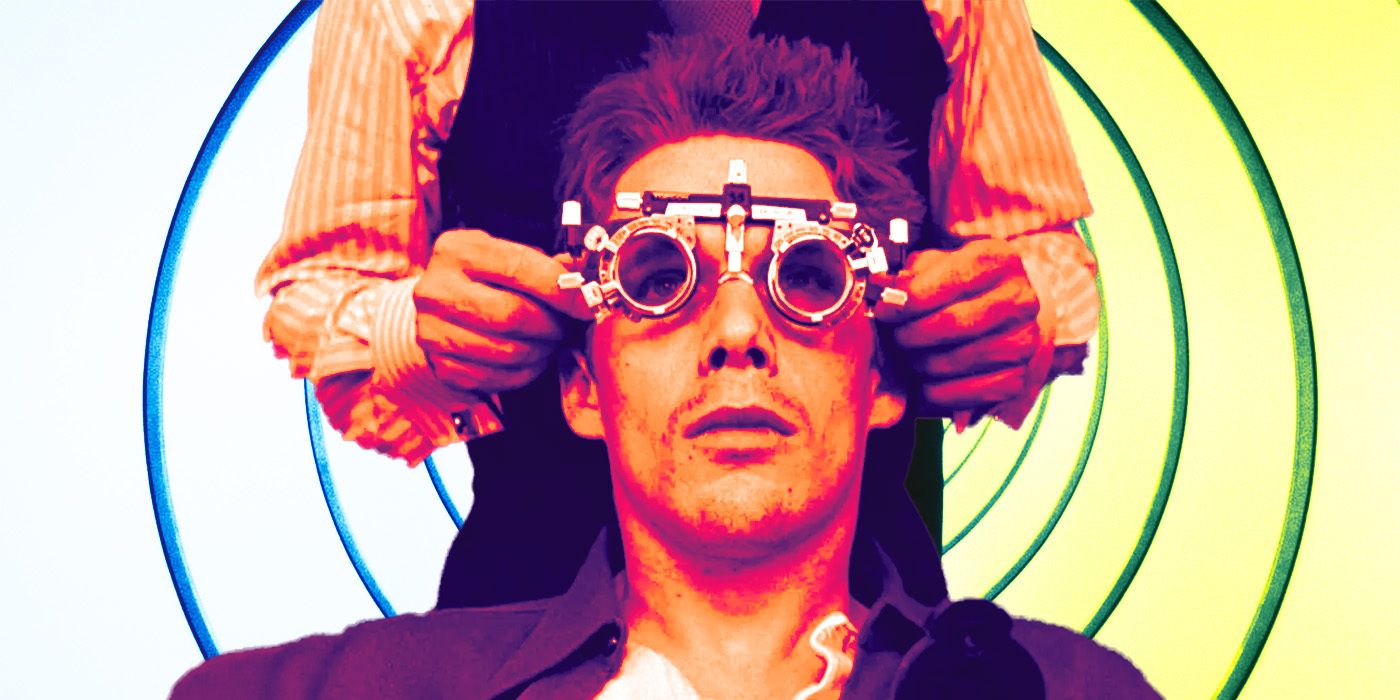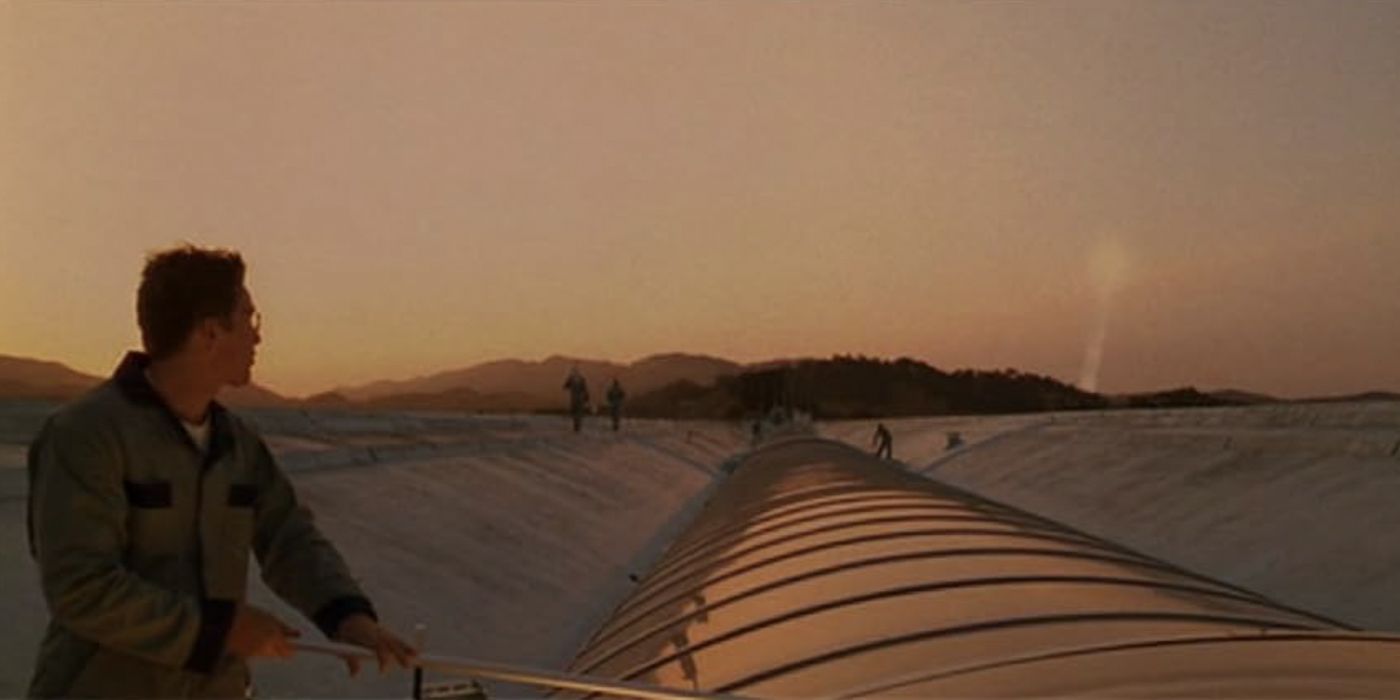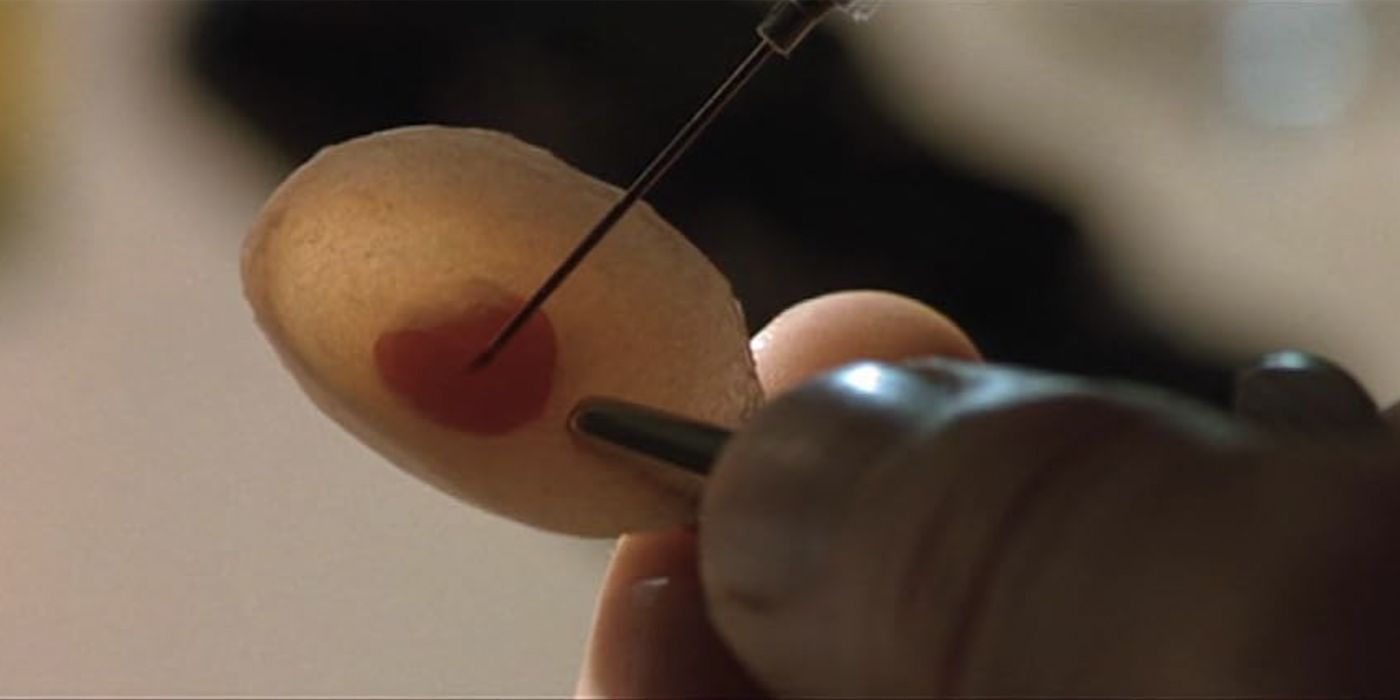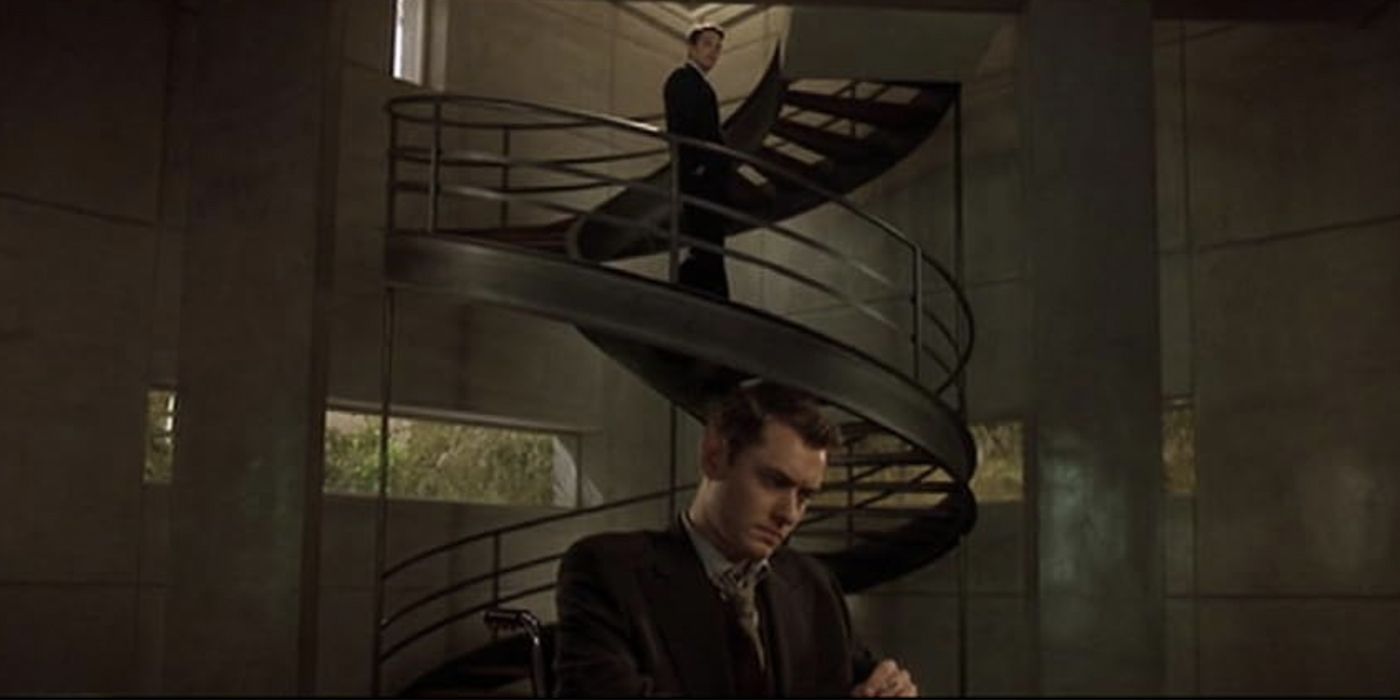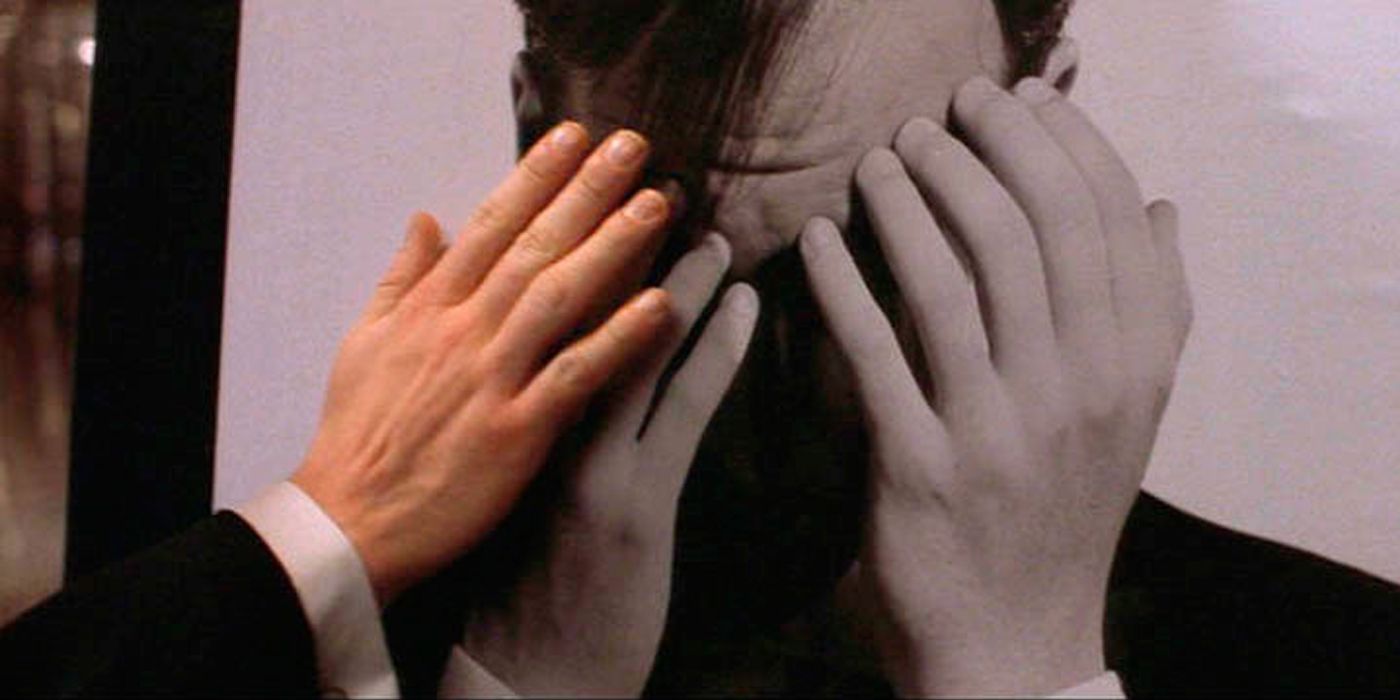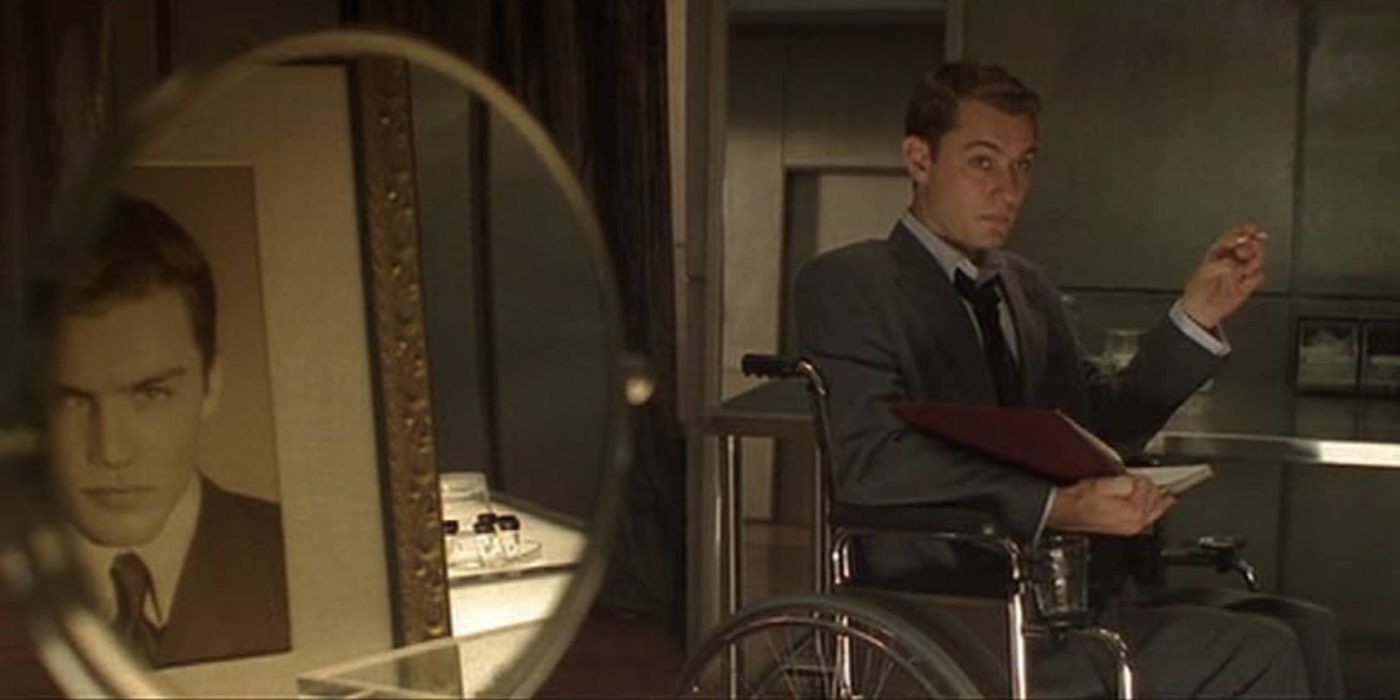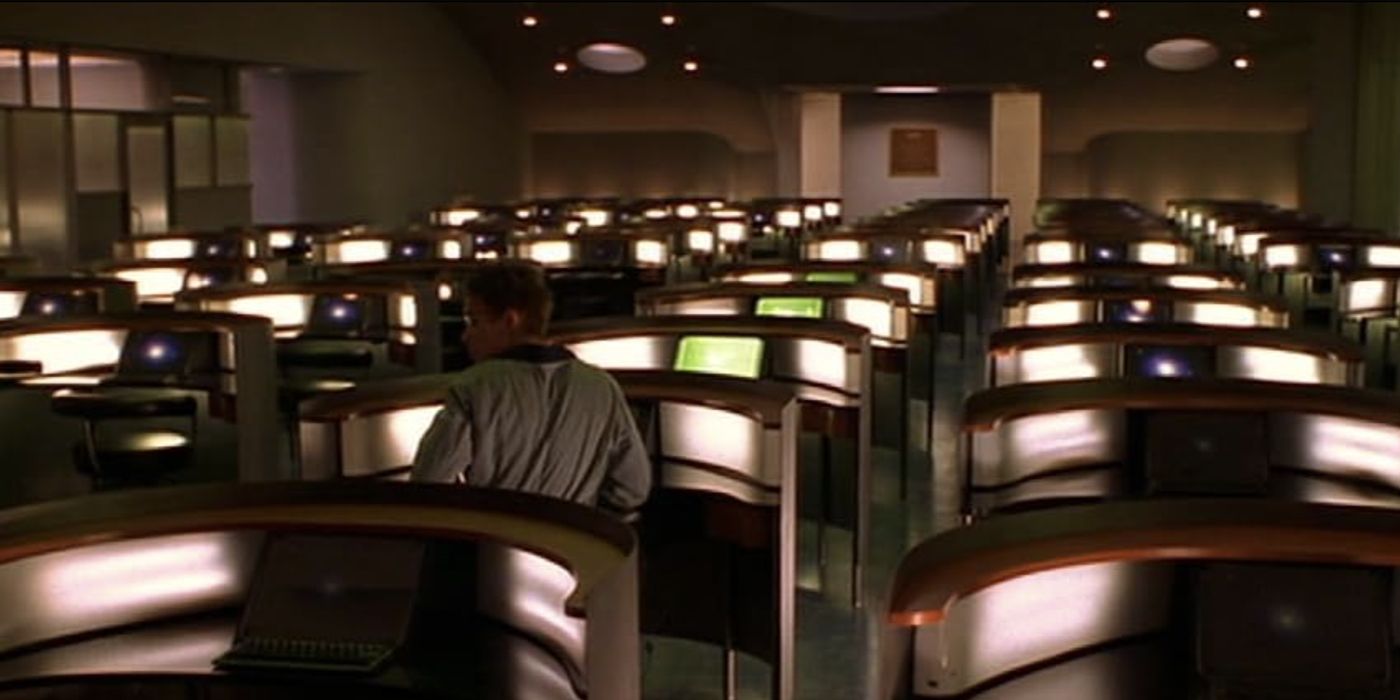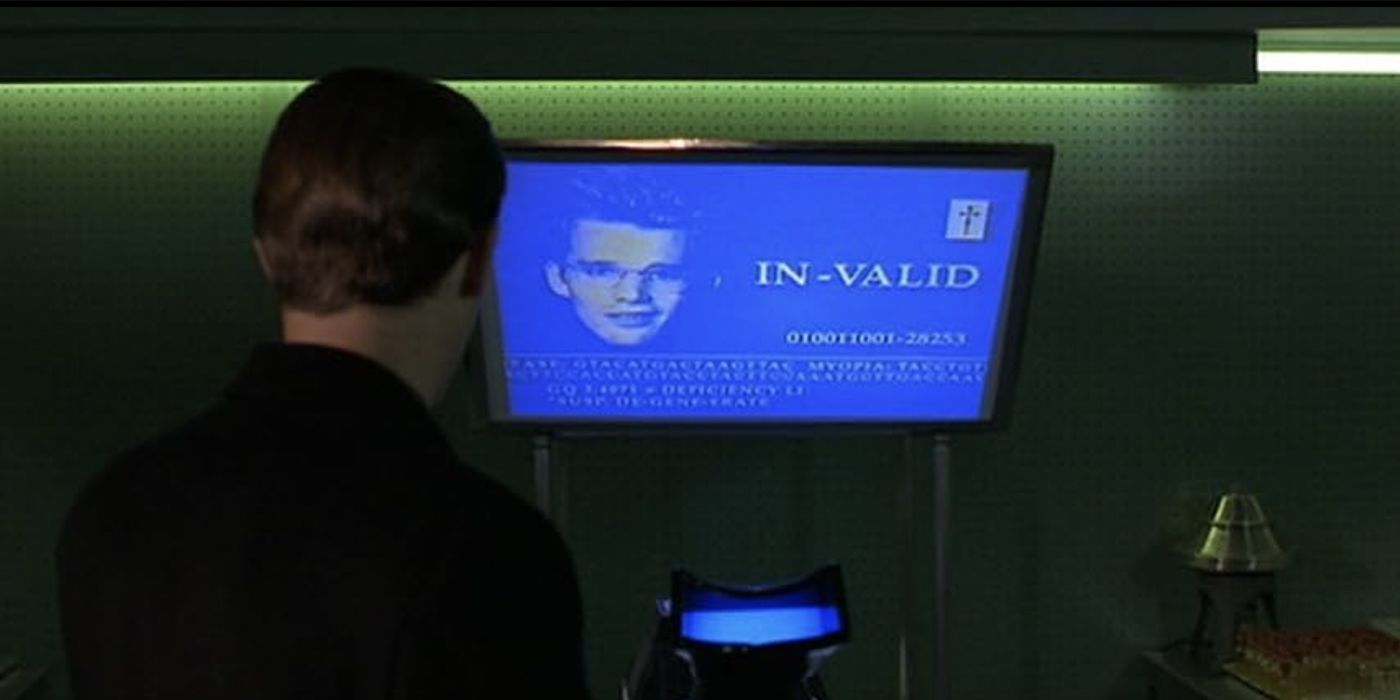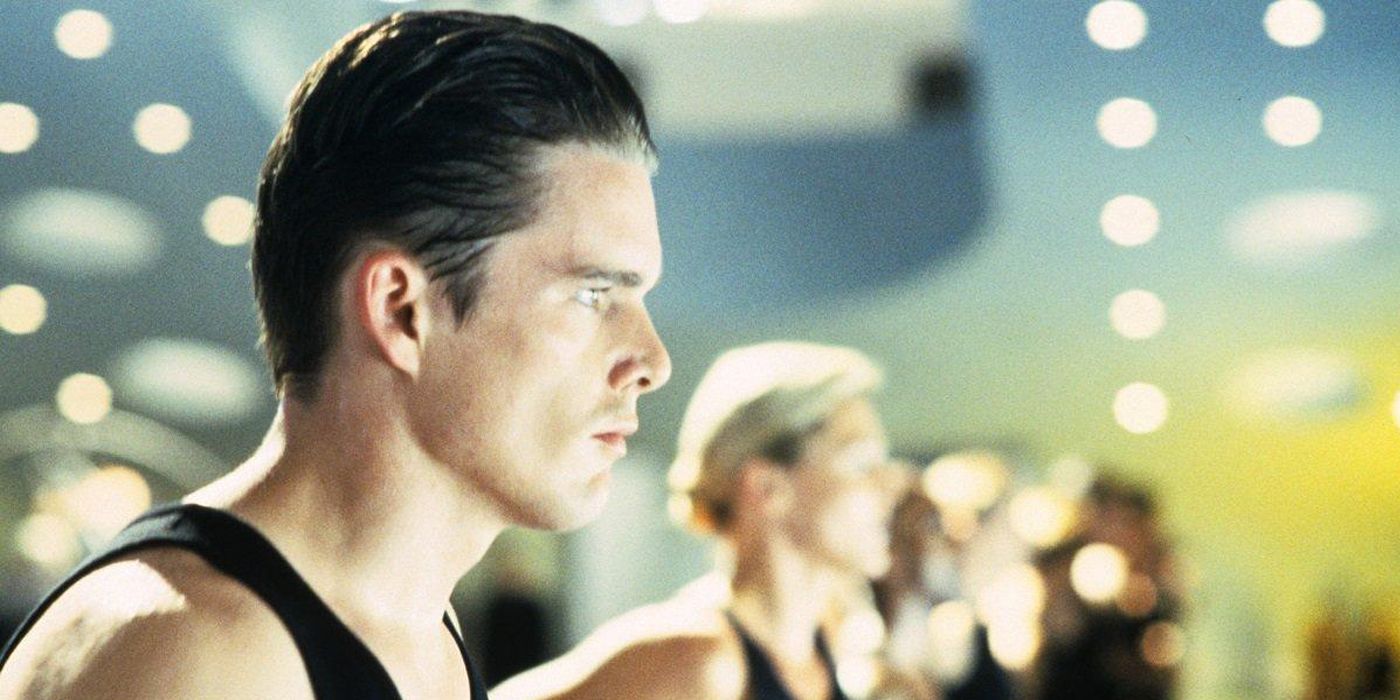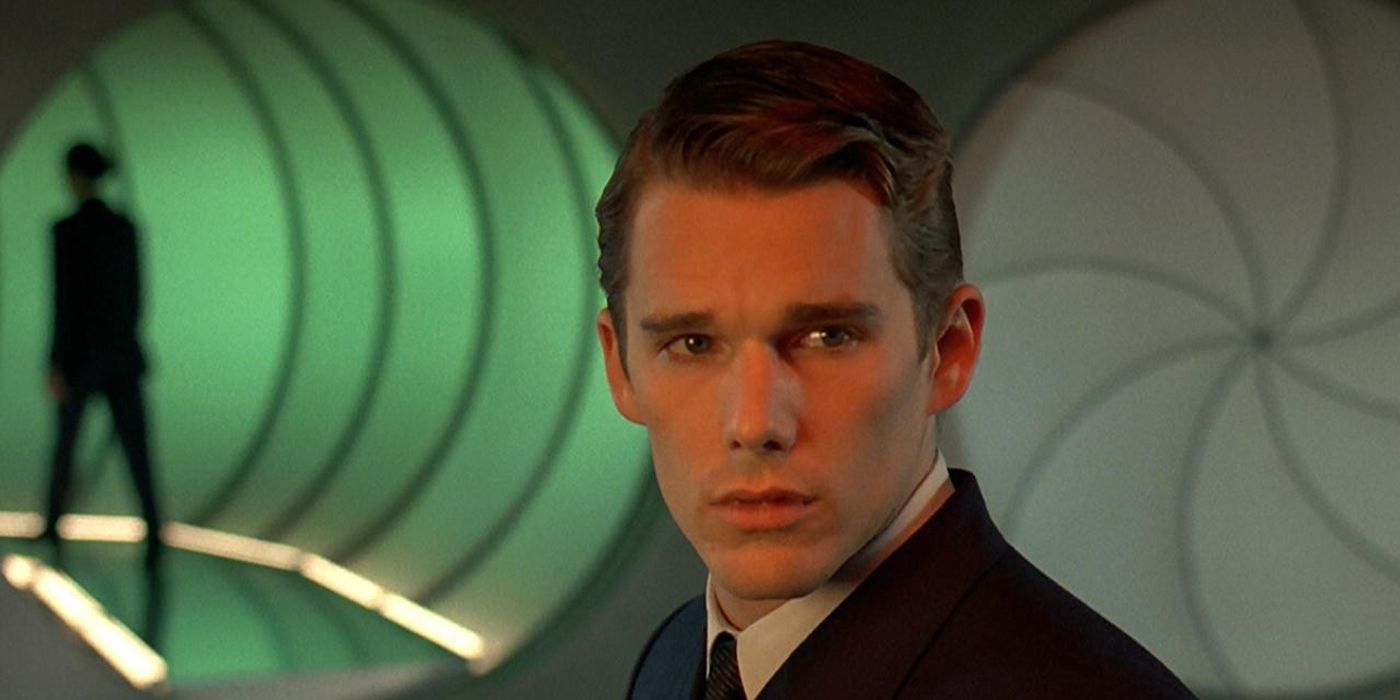It’s been 26 years since Gattaca was released. This sci-fi film wasn’t a great box office success, and it was kind of forgotten, but its themes, performances, and style have made it a must-watch. This is the story of Vincent (Ethan Hawke), a man created by love in a world where babies are made genetically perfect. His genetic deficiencies make him an “invalid”, someone who can only be part of a maintenance staff, while he dreams of going to space. To do so, he switches identities with Jerome (Jude Law), a “valid”, who had an accident and is in a wheelchair, and who will give him his blood, urine, and other body samples, so Vincent can pass the daily tests at Gattaca, his place of work, and go to space.
Gattaca
- Release Date
- September 7, 1997
- Runtime
- 106
The ’90s were a great time for sci-fi films, when studios would use small budgets to tell interesting stories that could hit it big. That was the reason an unproven director like Andrew Niccol got the opportunity to write and direct his first film ever, and got Ethan Hawke, Jude Law, and Uma Thurman to be part of this world. Here are 10 reasons why you should revisit this underrated sci-fi gem.
Incredible Sci-Fi Idea
The dangers of eugenics and genetic modification were themes that were still in their early stages in the ’90s, which is one of the reasons this film has become even more prescient and worth a rewatch now. The idea of a country where the only thing that matters is your genetics is a very scary one, and Niccol is able to create a story of one man, to represent what would happen, and how many people’s lives would be worse if this way of measuring people’s possible success, and lives ever became a reality.
Scientifically Accurate
Although this story feels almost like a horror film written by HG Wells or Aldous Huxley (his 1984 has some elements in common with this movie), what might be surprising is the fact that Gattaca was voted by NASA scientists as the most accurate science fiction film ever made. It’s obvious that the filmmaker was very attracted by the idea of genetics, and went deep into it, creating this story. The fact that a world where you’re only judged by your genetics and cast away by your imperfections is accurate for scientists is kind of spooky.
Unique Mix of Genres
At different times, this movie uses the trappings of a thriller (switched identities and always on the brink of getting caught), a neo-noir movie (a detective is trying to discover who killed the mission commander), a sci-fi theme (with all the genetics, and easy space travel), and even some sprinkles of a romantic drama (the relationship between Vincent and Irene). All those genres being mixed and interchangeable create a film that never stops moving, and one where audiences never know what’s going to happen next, making it a fun ride for them.
Great World Building
The movie is more utopian than dystopian and is very well-thought-out. This is a world where, after a kiss, a woman goes to a DNA facility to find out how pure and a “good catch” the guy she kissed really is. A famous pianist has 12 fingers and plays pieces that are for 12 digits, and there’s an underworld where people can fake their “validity” by using someone else’s blood and body fluids. Tony Shalhoub plays the intermediary who arranges the meeting between Jerome and Vincent, and helps the latter become the former through some surgery and cosmetic adjustments. He’s only in the film for less than five minutes, and his character is so specific and unique that he deserves his own spin-off.
A Cast at the Top of Their Game
Ethan Hawke (who is a master at doing underrated movies that deserve a second chance, like this one), Jude Law, and Uma Thurman are great as the lead trio. If that wasn’t enough, the film is full of great character actors that make this world more believable; actors like Alan Arkin, Ernest Borgnine, Tony Shalhoub, Xander Berkeley, Gore Vidal, and Elias Koteas. With that long list of characters, the film looks more lived in, and that makes it much better.
One of Jude Law’s First Roles
Before this movie, Jude Law’s biggest role was as Lord Alfred Douglas in the British film Wilde, so this was the movie where many people saw him for the first time, and it’s still one of his best films. He plays Jerome as bitter, sad, depressed, always drinking, and resentful of the world and the society that expects perfection from him, and it’s also obvious why he might be genetically superior to Vincent. The character even gets an arc as the film evolves, and Jerome, now called Eugene, has fallen under the pressure of all the expectations his genes give him, and gets swept under Vincent’s dream.
This Movie Put Andrew Niccol on the Map
Gattaca was Andrew Niccol’s first produced screenplay ever, and he was also able to direct it, showing Hollywood there was a new filmmaker in town. Months later, when he wrote The Truman Show, he confirmed his talent, and how he always thought of ideas that would become prescient in future decades. Since then, the New Zealander has kept writing and directing films that have an eye on the future and what is happening to our society, even if he’s not a box office draw. From Simone to In Time or Good Kill, his films always wonder how technology and society are evolving and how that might affect every person on the planet.
Nonconformism as a Theme
“There is no gene for fate”, Vincent says, and that’s one of the many reasons why his arc is so impressive and interesting. This movie is all about the human spirit and how nonconformism is what moves the world. Vincent has been told since he was a kid that he’d never get on a spaceship, but his relentlessness and love for his dream make him an outlier.
This is a beautiful message that is used many times in the film, not only in every instance where Vincent is at the base, doing things he shouldn’t be doing, but also when he swims against his brother and wins. When his genetically much stronger brother, Anton (Loren Dean), asks him how he does it, Vincent tells him, “I never saved anything for the swim back”. Many of the bigger discoveries in human history were made by nonconformists, “who never saved anything for the swim back,” and this movie reminds us of that with impressive style.
It Wouldn’t Be Made Today
Even if the film budget for this movie was only $36 million, it wouldn’t be made today, at least not as a film. We’re in a time when studios only want IP and film budgets either under five million dollars or over $100 million, so Gattaca would never get the chance.
Maybe the movie would be done as a Black Mirror-style, sci-fi TV series, where the story would be longer, and probably have more things to say about the supporting characters and society at large. Would that be better than the film? It’s hard to tell. What’s for sure is that Andrew Niccol would be a great creator for a sci-fi TV series, and it’s surprising that the streamers haven’t gotten to him yet.
Memorable Ending
The whole film is all about class privilege and inequality, even though this time, the thing that separates them is not race, gender, or money, but genetics, something that’s impossible to change. Having said that, the ending of this film leaves space for a moment of change, as Vincent/Jerome gets help from some other “invalids” who see one of their own has circumvented the system, making for a pretty positive ending. Especially the talk between Ethan Hawke’s character and Xander Berkeley as Jamal, the company doctor.
This story originally appeared on Movieweb

